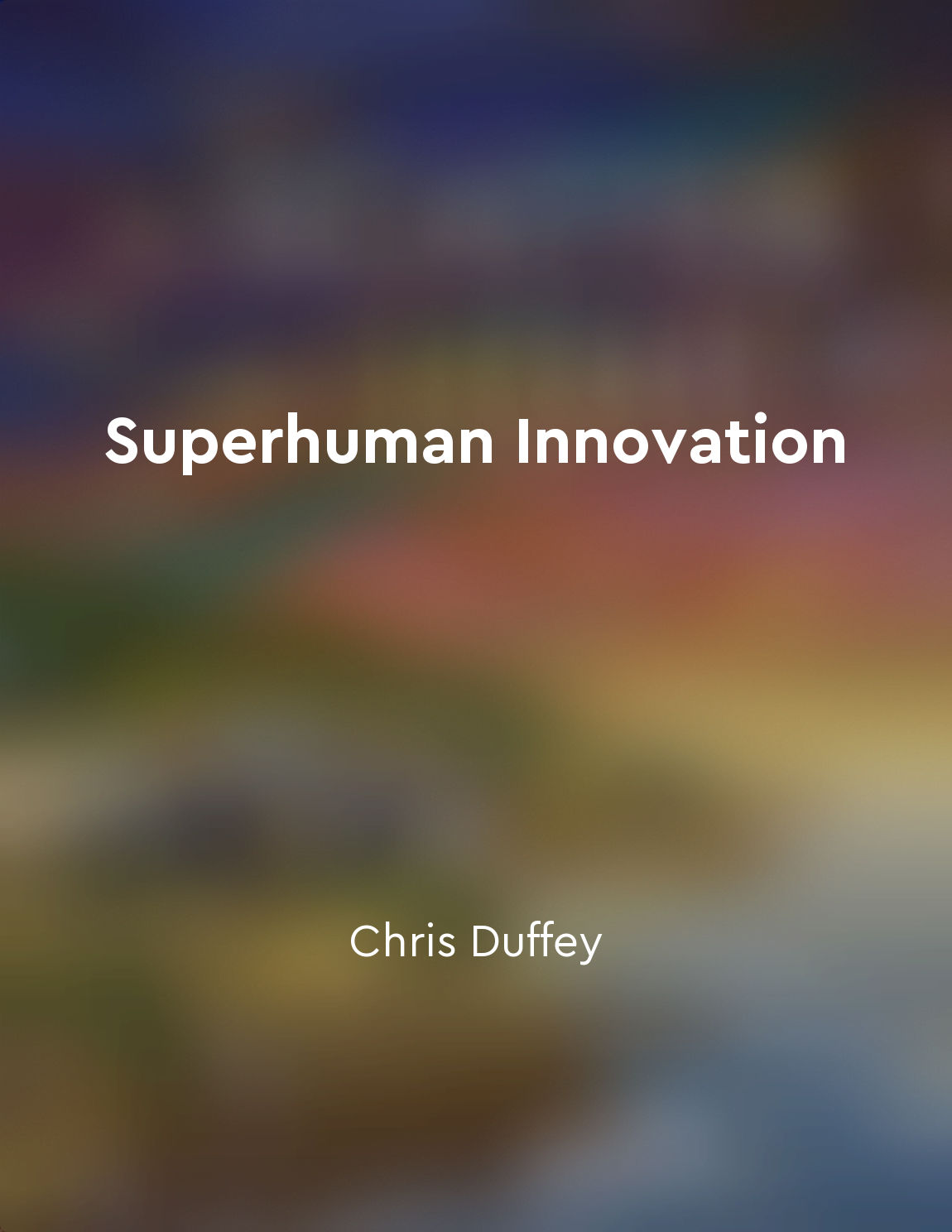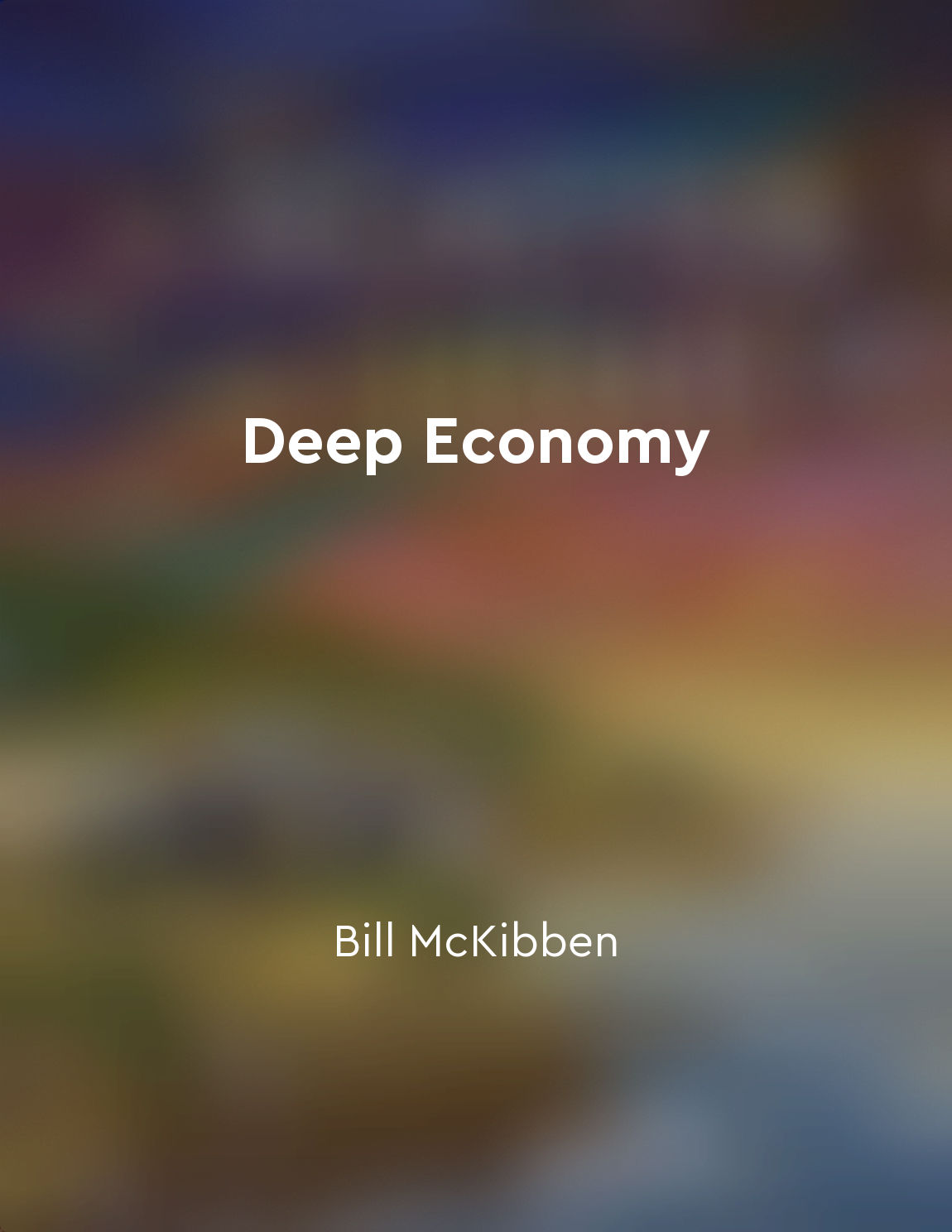Environmental sustainability becomes a priority from "summary" of 2030: How Today's Biggest Trends Will Collide and Reshape the Future of Everything by Mauro F. Guillén
The increasing awareness of the impact of human activities on the environment is leading to a shift in priorities towards environmental sustainability. As people become more informed about the consequences of their actions on the planet, they are beginning to prioritize practices that promote the long-term health of the environment. This shift is driven by a growing sense of responsibility towards future generations and a recognition of the finite nature of the Earth's resources. In the quest for environmental sustainability, individuals, businesses, and governments are reevaluating their practices and making changes to reduce their environmental footprint. This involves adopting more sustainable methods of production and consumption, such as using renewable energy sources, minimizing waste, and conserving resources. It also requires a shift towards a more circular economy, where products are designed to be reused, recycled, or repurposed rather than disposed of after a single use. One of the key drivers of the prioritization of environmental sustainability is the increasing frequency and severity of environmental disasters. Events such as wildfires, hurricanes, and droughts are becoming more common due to climate change, highlighting the urgent need to address environmental issues. In response, governments are implementing policies to promote sustainability, such as carbon taxes and emissions regulations, while businesses are investing in eco-friendly technologies and practices to reduce their environmental impact. As the concept of environmental sustainability gains momentum, it is expected to become a central focus of decision-making at all levels of society. From individual consumer choices to global policy decisions, the environment is likely to play an increasingly important role in shaping the future. By making sustainability a priority, we can work towards a more harmonious relationship with the planet and ensure a healthier, more sustainable future for generations to come.Similar Posts
Invest in developing a strong innovation ecosystem
To truly foster innovation within an organization, it is essential to create an environment that supports and nurtures new idea...

Embracing sustainability can lead to financial success
Embracing sustainability is not just a moral imperative; it is also a sound business strategy. Companies that prioritize sustai...

Empathy drives usercentric design
Empathy is the driving force behind creating user-centric design. By putting ourselves in the shoes of the end user, we can tru...
Government interventions impacted business decisions
Throughout history, the Indian government has played a significant role in shaping business decisions in the country. Various i...
Monitor industry trends
Being aware of what is happening in your industry is crucial for the success of your small business. Keeping an eye on industry...
Practice mindfulness in all areas of your life
When we talk about mindfulness, we're really talking about being present, about paying attention to the current moment. This me...

Power shifts
Power shifts are a fundamental aspect of the globalization process. As countries become more integrated into the global economy...
We must rethink our relationship with nature
The idea that we must rethink our relationship with nature is not simply a suggestion, but a necessity in the face of the clima...

Gross domestic product is not a measure of wellbeing
The idea that gross domestic product (GDP) can accurately measure the wellbeing of a society is deeply flawed. GDP simply measu...
Resilience in the face of climate change
The ability to withstand the challenges posed by a changing climate is essential for communities around the world. Climate chan...
